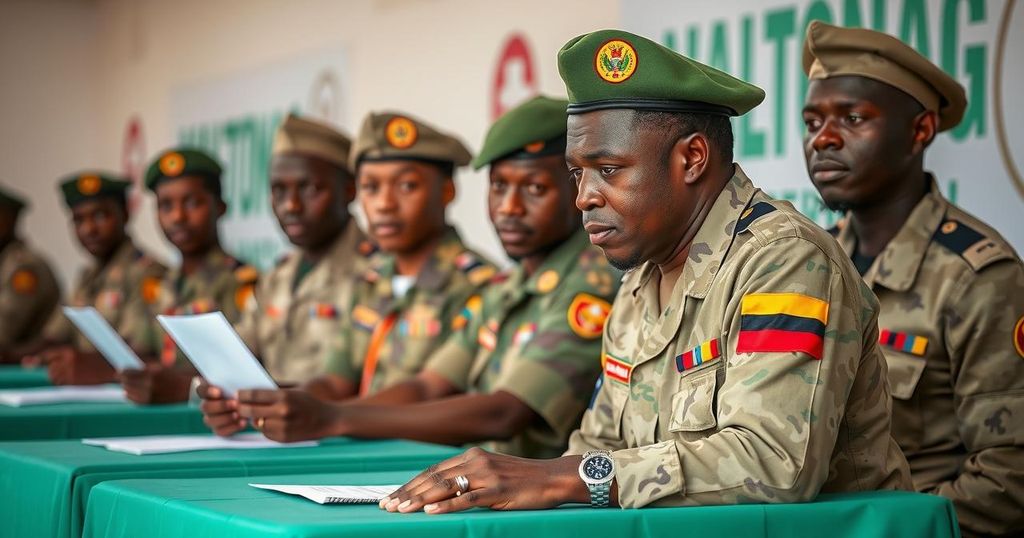Chad Holds Elections Amid Boycotts and Allegations of Fraud

Chad voters participated in elections for local, provincial, and legislative bodies following three years of military rule, amid opposition boycotts claiming electoral fraud. Authorities assert these elections represent a step towards democracy, despite significant allegations of manipulation and ballot irregularities.
On Sunday, voters in Chad participated in legislative, provincial, and local elections following three years of military governance. The elections faced opposition boycotts due to allegations of electoral fraud surrounding last year’s presidential vote. Opposition leaders, including Succes Masra, urged constituents to refrain from voting, condemning a governmental system founded on deception and electoral manipulation. Reports emerged of ballot irregularities, including the disappearance of ballots intended for specific regions. The political landscape is overshadowed by ongoing security threats from Boko Haram and criticisms of the military regime’s autocratic tendencies. Despite the opposition’s grievances, authorities emphasized these elections as pivotal for Chad’s shift towards democratic governance after the military assumed power in 2021 due to the death of long-time leader Idriss Deby Itno. The current climate remains tense, marked by restricted press freedom and heightened political vigilance.
Chad has experienced three years of military rule following the death of Idriss Deby Itno, who presided over the country for 30 years. His son, Marshal Mahamat Idriss Itno, assumed leadership in 2021 amid a challenging political climate characterized by allegations of electoral fraud and increasing authoritarianism. The current elections have been framed by the government as essential for transitioning Chad towards a more democratic framework, even as opposition parties claim that such steps are merely cosmetic, designed to maintain control rather than foster genuine democratic processes.
The elections in Chad reflect a turbulent political period shaped by military governance and contested legitimacy. The opposition’s disenfranchisement highlights the broader struggles for democratic reforms amid accusations of electoral fraud and oppressive practices by the ruling party. As the nation navigates these challenges, the outcome holds significant implications for Chad’s political future and the populace’s voice in governance.
Original Source: www.france24.com








